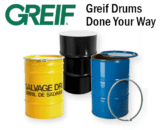
Organizations that are successful over the long term generally have one thing in common—they solve problems before they become problems.
We see this in the supply chain every day. Disruptions happen. Companies that are prepared to handle those disruptions come out ahead of those that aren’t prepared—and the difference usually comes down to planning for the unplanned.
Now, let’s talk about your large format lithium batteries.
Shipping lithium batteries of any size—safely, efficiently and compliantly—invites any manner of potential problems. And the bigger the batteries get, the bigger those problems get. When your batteries are powerful enough for electric vehicles, solar power storage, data centers and other heavy-duty purposes, those potential problems get mega-sized.
How can you plan for the unplanned with large format lithium battery transport? Here are three key steps.
Know your batteries and the regulations that apply to them
If you unexpectedly have to transport your batteries—say, if there’s a recall—the first step in being prepared is to have everything in place to ship them compliantly. You must know the applicable regulations and requirements in advance, so you don’t have to scramble if the unexpected happens.
Start with the basics. Large format lithium batteries are fully regulated, Class 9 hazmat. That means each shipment will require specific labels, documentation and packaging. It also means all your employees involved in handling these packages must have training in Fully Regulated lithium battery transport. Since training doesn’t happen overnight, you need to make sure your teams get this training today, if not sooner.
Next, consider your batteries’ weight. A battery weighing more than 400 kg is a bulk shipment, requiring a UN specification Large Packaging, while batteries weighing 400 kg or less can be shipped in other UN packages. You need to know exactly which class of packaging you’ll need—today—to make sure you have it ready when you need it (more on that later).
The final regulatory factor is your batteries’ condition, which limits the modes and ways you can compliantly ship them. (For instance, damaged, defective or recalled—a.k.a. DDR—lithium batteries can never be shipped by air.) Since you can’t know ahead of time what condition your batteries will be in when problems arise, you need to have plans in place for both good condition and DDR batteries.
Have packaging designed, tested and ready to go
As noted above, your battery’s weight dictates whether you need bulk or non-bulk packaging. But there are many more packaging considerations for large format lithium batteries, and the time to consider them is now—not in the future when the unplanned happens.
The main reason you need to plan packaging ahead of time is that your batteries will almost certainly require custom packaging. Given the many variables between different large format lithium battery designs (and individual modules of cellular module assemblies—a.k.a. CMAs), you won’t be able to just order packaging off the shelf when you need it. You’ll need crates designed specifically for your batteries—which, naturally, needs to be done in advance.
And then there’s the small matter of testing. Your packaging designs will have to pass a series of rigorous tests (by your organization or a reputable third-party lab) to be certified as compliant. Testing takes time, and designs often fail on the first go-round—which means you’re modifying the design, and testing it again. If you wait until you actually have a problem to start testing your packaging, you’ll be looking at delays of weeks or months.
Finally, of course, packaging needs to be built and transported to where it’s needed. You can’t know ahead of time how many crates you’ll need, but it’s smart to have some built and stored where they’re easily accessible.
Have your supply chain partners in place
If and when you have a problem requiring you to transport large format lithium batteries, you’ll need partners to help with regulatory compliance, packaging design, testing, transport and more—not to mention moving the batteries themselves.
The time to connect with these partners is now—not when you have a problem.
Some of the world’s largest manufacturers have relied on Labelmaster to help them build a turnkey supply chain program for transporting large format lithium batteries. They trust our Dangerous Goods experience, expertise and hands-on assistance to help them plan for the unplanned. You can, too.
Start solving your large format lithium battery problems before they actually become problems. Contact Labelmaster today!
Make sure your shipments are safe and in complete compliance with a full line of solutions from Labelmaster—a full-service provider of goods and services for hazardous materials and Dangerous Goods professionals, shippers, transport operators and EH&S providers.


